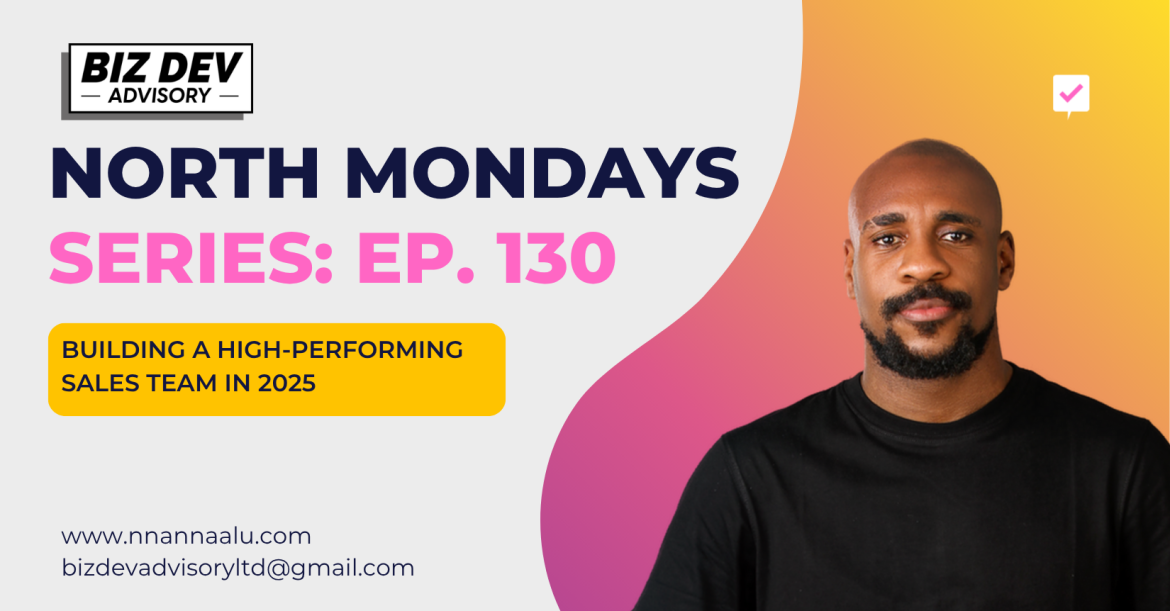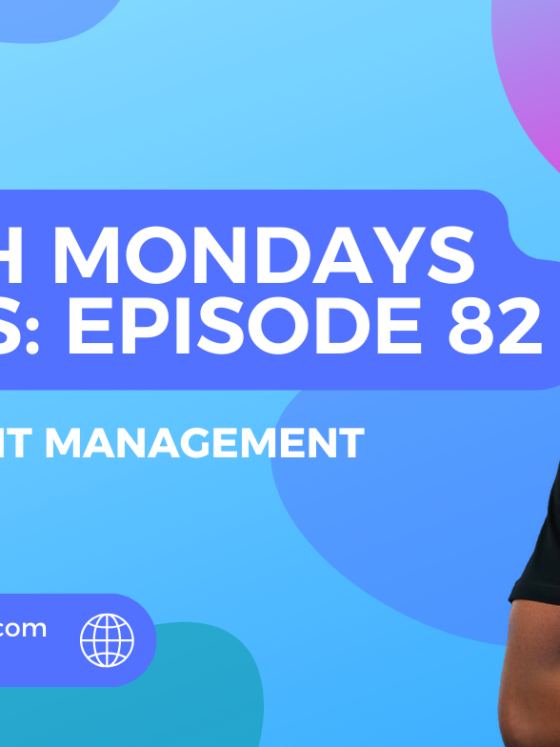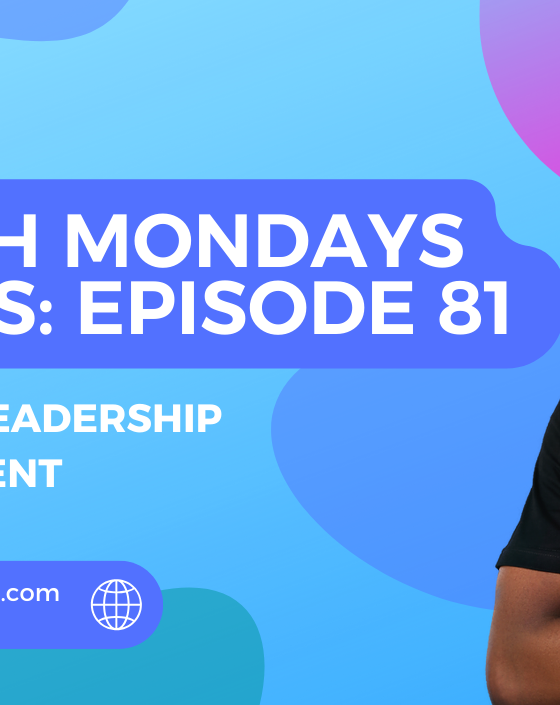Building a High-Performing Sales Team in 2025
North Mondays Series: Episode 130

Every organization wants a high-performing sales team, but few know how to build one that lasts.
The challenge today is not just hiring talent—it’s developing skills, managing hybrid roles, and creating alignment in a fast-changing sales environment. The best teams are no longer just full of strong closers; they’re built on collaboration, adaptability, and data-driven performance.
As sales structures evolve, the trend shaping the future is clear: hybrid sales roles—where reps combine in-person relationship management with virtual selling and digital engagement. The leaders who learn to build and empower these hybrid teams will dominate their markets.
Why a High-Performing Sales Team Matters
A high-performing sales team drives consistent revenue, customer trust, and market advantage. It’s the growth engine of every business.
Strong teams:
- Achieve targets more consistently.
- Adapt faster to changing buyer behavior.
- Share insights that improve marketing and product strategy.
- Build long-term customer relationships, not just one-time deals.
Example: A company with a focused, well-trained sales team can outperform competitors with twice their marketing budget. Why? Because execution beats exposure every time.
Ask yourself: Is your team just busy—or are they truly high-performing?
The Challenge: Skill Development in Sales Teams
Many businesses fail not because they lack leads, but because their teams lack the skills to close them.
The skill gap often includes:
- Weak negotiation techniques.
- Poor understanding of buyer psychology.
- Inconsistent follow-up habits.
- Low confidence in digital tools and analytics.
And here’s the real issue: training is often a one-off event instead of a continuous process.
To build a high-performing sales team, leaders must create a learning culture. Skills must be built, measured, and reinforced over time.
Practical example: The best sales organizations hold “weekly skill clinics” where team members practice objection handling, review calls, and share lessons from lost deals.
Question: How often does your sales team train, not just sell?
The Trend: Hybrid Sales Roles in Modern Teams
The rise of hybrid sales roles is reshaping how top teams operate.
Today’s buyers expect flexibility. Some prefer face-to-face meetings; others prefer quick virtual demos or social engagement. Successful teams blend both.
Hybrid sales professionals:
- Build personal connections offline while managing digital touchpoints online.
- Use CRM and automation tools to track interactions in real time.
- Collaborate closely with marketing for aligned outreach.
- Understand data analytics to personalize pitches.
Leaders must hire and train for these hybrid skills—communication, digital fluency, and adaptability.
Example: A hybrid rep might meet a client once in person, continue the relationship through virtual demos, and close the deal using data insights from their CRM.
This flexibility is the new sales advantage.
How to Build a High-Performing Sales Team
- Hire for mindset, not just experience
- Look for curiosity, discipline, and coachability.
- Technical skills can be taught; drive cannot.
- Train continuously
- Replace one-time workshops with ongoing coaching.
- Schedule micro-learning sessions weekly.
- Adopt data-driven performance reviews
- Measure success by KPIs like deal velocity, conversion rate, and customer retention—not just quotas.
- Foster team collaboration
- Create shared dashboards where reps learn from one another’s results.
- Celebrate team wins, not just individual ones.
- Develop hybrid skills
- Train reps in digital prospecting, CRM management, and virtual presentation skills.
- Encourage them to use tools like LinkedIn Sales Navigator, Gong, or HubSpot to enhance outreach.
- Reward behavior, not just outcomes
- Recognize consistent follow-up, creative problem-solving, and customer-first behavior.
- Build culture, not just competition.
Case Examples of High-Performing Sales Teams
- Technology company: Implemented hybrid sales roles combining digital analytics with personal consultations. Closed 40% more deals in six months.
- Real estate group: Introduced ongoing skill-based workshops, boosting agent confidence and cutting sales cycle time by 25%.
- B2B services firm: Shifted from commission-only to team-based incentives, leading to better collaboration and stronger retention.
The takeaway: skills, systems, and structure matter—but mindset sustains performance.
Key Takeaways
- A high-performing sales team requires ongoing skill development, not one-time training.
- Hybrid sales roles are the new standard for modern selling.
- Data, collaboration, and culture drive consistency.
- Sales leaders must become coaches, not just managers.
North Mondays Action Plan
- Audit your current team
- Identify top performers and the habits that set them apart.
- Define hybrid role expectations
- Clarify what “hybrid” means for your industry—mix of digital, in-person, and analytics skills.
- Create a skill development roadmap
- Plan monthly sessions on negotiation, digital tools, and customer communication.
- Implement shared dashboards
- Give visibility into every stage of the sales funnel for accountability.
- Coach weekly
- Schedule short, focused coaching calls with each rep.
- Measure progress quarterly
- Track improvements in close rates, lead quality, and retention.
Final Reflection
A high-performing sales team doesn’t happen by accident. It’s built through deliberate hiring, ongoing coaching, and adaptable systems.
Hybrid sales roles are not replacing traditional sales—they’re expanding what’s possible. The most successful teams of 2025 will be those that combine human connection with digital precision.
When you invest in skill growth and culture, performance follows.
Your next sales breakthrough won’t come from luck—it will come from leadership.








Recent Comments